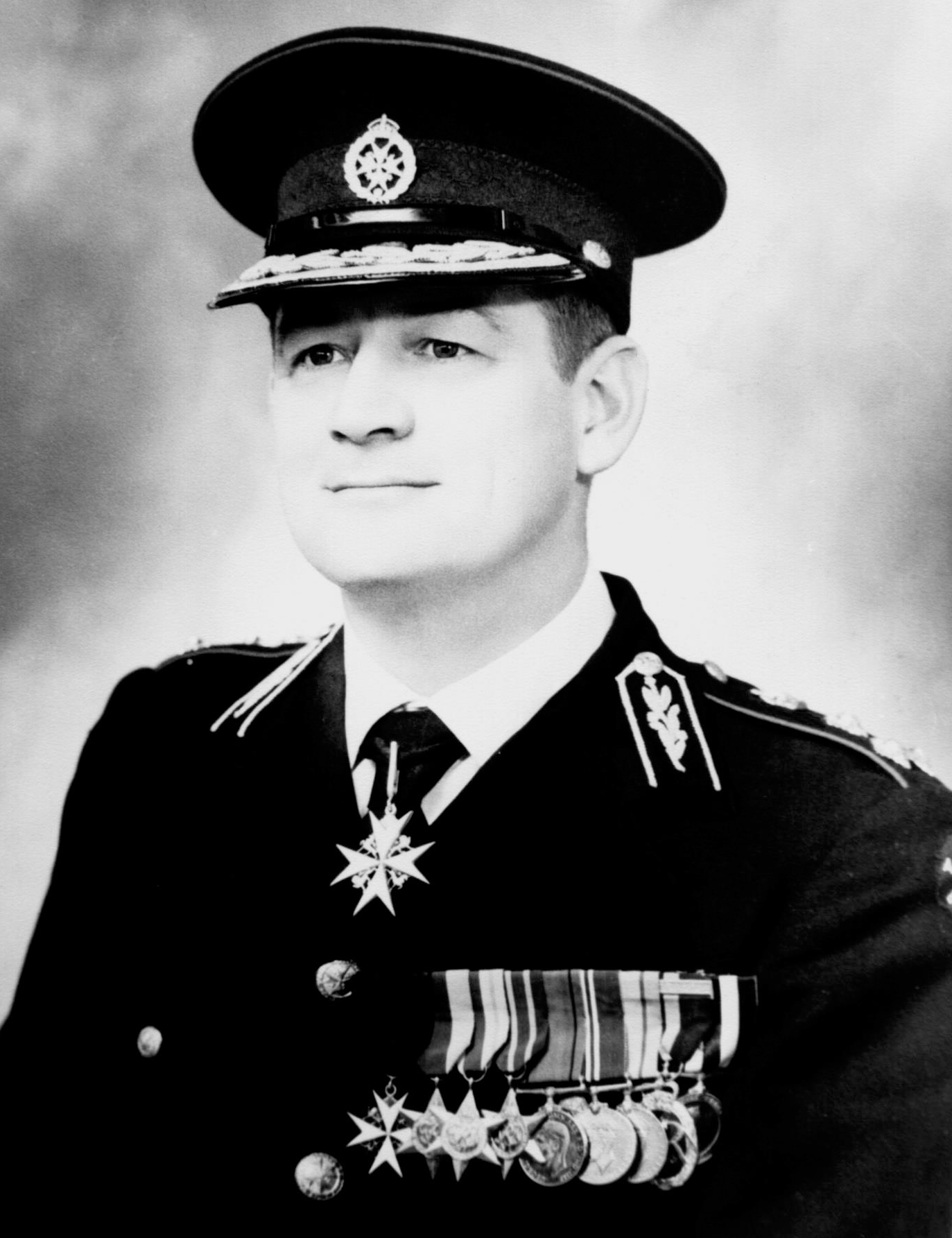 Charles Douglas Donald MBBS, LRCP, MRCS(Lond), FRCS(Eng), FRACS, CBE, KStJ, ED. was born on 5th March 1910 at Euroa, in country Victoria. His primary school education was in the country towns where his father’s Education Department teacher postings took him. Secondary schooling from 1924-27 was at Melbourne Boy’s High School, on the site in the city now occupied by the College of Surgeons. He entered the medical school of the University of Melbourne and graduated MB BS in 1933. He spent several years as a medical officer at Prince Henry’s Hospital before going to England for advanced training in surgery.
Charles Douglas Donald MBBS, LRCP, MRCS(Lond), FRCS(Eng), FRACS, CBE, KStJ, ED. was born on 5th March 1910 at Euroa, in country Victoria. His primary school education was in the country towns where his father’s Education Department teacher postings took him. Secondary schooling from 1924-27 was at Melbourne Boy’s High School, on the site in the city now occupied by the College of Surgeons. He entered the medical school of the University of Melbourne and graduated MB BS in 1933. He spent several years as a medical officer at Prince Henry’s Hospital before going to England for advanced training in surgery.
He qualified as a Licentiate of the Royal College of Physicians and Member of the Royal College of Surgeons, in what was called the “conjoint diploma”, in 1936. He gained his FRCS England in 1938. He returned to Australia and shortly afterwards, at the outbreak of war, he joined the army. After the war he gained FRACS in 1945.
In 1939 he joined the AIF and served with 2/1st Field Ambulance in Libya, Greece, Crete, Syria and Ceylon. He was mentioned in despatches in 1941. From Ceylon he was repatriated to Australia and discharged from the Army in 1945. After the war he joined the staff of University of Melbourne Department of Anatomy where he taught for 34 years. He was a Senior Surgeon at Prince Henry’s Hospital in Melbourne where he tutored medical students and postgraduate trainees for many years.
Prince Henry’s Hospital began in 1869 as the Melbourne Homoeopathic Dispensary, a charitable service to the poor. The first small hospital opened in a house in Spring Street in 1876, and in St Kilda Road in 1885. The Board agreed in 1934 to abandon its restrictive philosophy, launch a public appeal for rebuilding, and to rename itself Prince Henry’s Hospital. By the late 1950’s the hospital had been completely rebuilt and modernised.
Dr Donald became an Honorary Outpatient and subsequently, in 1951, an Inpatient Surgeon and Head of a General Surgical Unit. He served a term as Chairman of Staff. He was an examiner for the University and the College of Surgeons. He was also a surgeon at the Police Hospital. For 28 years he was Chief Medical Officer of the Gas and Fuel Corporation. He was Commanding Officer of the Citizen Military Forces 6th Field Ambulance and promoted to Lt-Colonel in 1953. He became Assistant Director of Medical Services for 3rd Military District (Southern Command) at Victoria Barracks in 1956 and was promoted to the rank of Colonel.
He was actively involved in teaching first aid as an instructor and examiner. He joined the Centre Committee of St John Ambulance Association from 1956 and served as Chair from 1957-59 and again in 1969. He was a member of St John Council from 1954, serving as Chairman from 1969-71 and from 1974-78. He was promoted to Assistant Commissioner of Victoria District in 1958 and to Commissioner in 1959. He was invested as a Knight of Grace in 1963. He was promoted to Australian Headquarters as Chief Surgeon in 1966 and became Chief Commissioner in 1969. He remained Chief Commissioner until his death in 1979.
Colonel Donald was also chairman of the Melbourne University Graduate Union from 1968-1970 and, briefly, a member of the University Council. He was a member of the Victoria Racing Club, Returned Servicemen’s’ League and naval and military organisations. He had been a Council member of the Royal Automobile Club of Victoria since 1969 and President of the Private Hospitals and Nursing Homes Association from 1967-1979. He was a member of the Australian Medical Association Council, serving as President in 1966, and was made a Fellow of the AMA in 1970.
In 1970 he was made a Companion of the Order of the British Empire.
Colonel Donald died of a short episode of acute renal failure consequent to carcinoma of the stomach, at the age of 69 years on 4th August 1979.
Last updated: 25 December 2024
Main source: A S Walker, “Australia in war of 1939-45, Series 5, 1962.
Article by Dr Allan Mawdsley OAM
